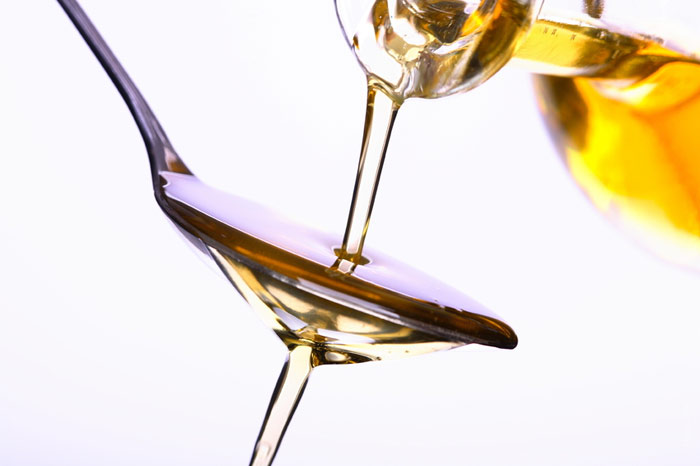Looking at your best can come at a cost, with so many expensive cosmetic products and wonder beauty treatments flooding the market – it’s hard to know which ones to trust when you read all the wildly impressive claims. However, cannabis is currently making some huge waves in the cosmetic industry, with manufacturers quick to spot the newly-proven benefits of various compounds in the herb.
Studies on the endocannabinoid system have found that cannabinoid receptors are situated in the skin, and that these can be stimulated by applying external treatments containing CBD, including creams and transdermal patches. Activating these receptors with CBD, an anti-inflammatory and antibacterial compound, provides numerous therapeutic effects for the skin, many of which enhance appearance. Naturally, any type of product that promises to keep us looking great needs scrutiny, so let’s investigate why CBD creams may clear up irritating skin conditions and stave off wrinkles and saggy skin.
Skin conditions, inflammation and the endocannabinoid system
Most skin conditions are caused by problematic immune systems. For example, most scientists and dermatologists now accept that psoriasis is an autoimmune disease – hence, the symptoms of patchy, red and flaky skin occur due to an overactive immune system, which leads to skin cells being created and forced to the surface of the skin unnecessarily quickly.
Acne is a skin disorder that is notoriously common in teenagers and young adults all over the world, which causes the sebaceous glands to become inflamed and enlarged, increasing sebum production to the extent that it makes the skin oily and dirty, which raises the possibility of infection and pustules. Bacteria gets trapped in the pores of the skin of acne patients due to excess sebum.
Both acne and psoriasis have frustrated experts for decades, particularly the latter as even the cause has been subject to intense debate until recently. But researchers are now tackling these conditions with renewed vigour now they know the endocannabinoid system operates in the skin, and that it can be regulated to cool down the immune system and eliminate unhelpful inflammation.

For acne, the goal of immune system modulation is not to switch off the sebaceous glands and stop sebum from forming, as this would cause dry and cracked skin – unfortunately, however, this is what some low-quality acne remedies do. Contrastingly, CBD strikes a happy medium, so that the sebaceous glands create enough sebum to provide lubrication for the skin and waterproof it to protect from infection.
The oily appearance of skin due to acne can impact mental health, instigating a loss of confidence and even episodes of depression – data published in the British Journal of Dermatology showed that those with acne are 60 percent more likely to be diagnosed with depression than the rest of the population.
CBD helps with psoriasis somewhat differently. On average, it takes 30 days for new skin cells to be created and then shed. But unfortunately, an overactive immune system hastens the production of skin cells, causing patchy skin with red blotches as the skin is unable to shed excess cells quickly enough. CBD modulates the immune system so that the skin cell life cycle is brought down to a natural speed. It’s not always possible to clear up all psoriasis symptoms, but the patches should reduce in size if regularly using a cream. The antibacterial, antifungal and antimicrobial properties should keep the skin clean, while the anti-inflammatory effects calm any redness. In addition to topicals, the immune system can also be regulated using CBD vape oil and e-liquid.
Psoriasis is another skin disorder that negatively impacts mental health. A study by the mobile app PsoHappy found that British people with psoriasis were 24 percent less happy than the average Briton. Low self-esteem and a lack of confidence were among the most commonly reported emotional side effects of psoriasis.
There is still a void in clinical research on the effectiveness of CBD as a treatment for complex skin complaints, but that hasn’t stopped people from trying creams for acne and psoriasis and sharing their stories on the internet. Therefore, we can have confidence that the initial studies suggesting that CBD can help with various skin problems are accurate.
CBD: antioxidant-rich compound an anti-aging wonder
The antioxidant and neuroprotective effects of CBD and other cannabinoids are some of the most studied attributes of this set of compounds. In 2003, the Department of Health and Human Services was granted a patent on the usage of cannabinoids in antioxidant and neuroprotective drugs. These effects are mostly of interest because they suggest cannabinoids can be used to improve the health of the brain, however, antioxidants are also excellent for the skin and at reducing extrinsic aging caused by uncharged molecules known as free radicals.
Free radicals look to pair themselves by joining with electrons, which they steal from the skin – but this process damages the skin’s DNA. Normally, the skin combats the oxidative stress from free radicals with a molecule known as nicotinamide adenine dinucleotide (NAD), but as an antioxidant, CBD can also help with the fight. Free radicals come from ultraviolet rays emitted by the Sun, and also pollution and cigarette smoke. Long-term smokers often look older than non-smokers, because their skin has aged so much due to the exposure to free radicals.

Final thoughts
From a beauty perspective, as we get older, retaining our youth for as long as possible can be an important ambition, and many consider Botox and various types of plastic surgery. However, the neurotoxins that are often involved in treatment can be damaging for the brain, hence the huge appeal for a plant-based option, sans the harmful side effects. OrbisResearch found that the global anti-aging market was worth a whopping $250 billion in 2016, and that an additional 30 percent growth was anticipated by 2021. With the demand for CBD products rising by more than 200 percent from 2014 to 2017, the potential for CBD beauty creams, lotions, lipsticks and more looks limitless.
And remember that cannabinoid science is still new and developing – over the coming months and years, products will likely become even more therapeutic.
